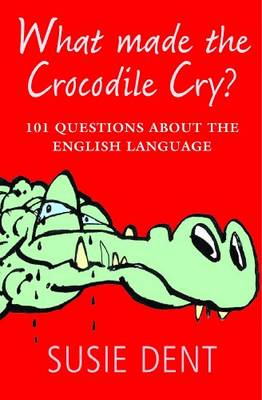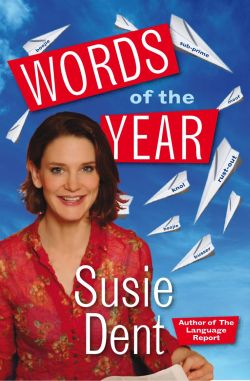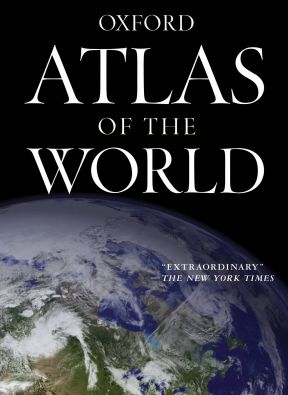What Made the Crocodile Cry? 101 Questions about the English Language is the latest book from Countdown’s word expert Susie Dent. The questions in the book have been submitted by Susie’s Countdown viewers, by readers of her weekly Radio Times column, and also from the many visitors to the Ask Oxford website. Supported by Oxford’s dictionary research programme, Susie has set about researching a selection of some of the hundreds of questions posed, even if for some there is no definitive conclusion. Below are four of those 101 questions.
Word fans might also like to know that Susie Dent will be announcing her words of the year on November 26th.
Is it true that the modern gym has something to do with naked men?
The first gyms go back some 2,500 years, where they played an important role in ancient Greek society. Gymnasia served both as training arenas for public games and as venues for socializing: people would go there to listen to lectures on philosophy, literature, and music. They were, inevitably, men only affairs, and the word gymnasium reflects this. It comes from the Greek verb gumnazein meaning ‘to exercise naked’, and that is because athletes of the time competed in the nude as a tribute to the gods and in aesthetic appreciation of the male body.
Gymnasia sometimes hosted other, more spectacular, events too. Mock sea battles were among the most popular, for which the central arenas would be flooded. According to the historian Oscar Brockett, the most ambitious was staged in AD 52 on the Fucine Lake east of Rome; some 19,000 participants.
I’ve heard that the original peeping Tom spied on Lady Godiva. Is that true?
Yes, it is—at least partly. Thomas, and its abbreviation Tom, has been a generic name for a male for over a thousand years. Other words and phrases featuring the name include tomfool, tomboy, Tom Farthing (a fool or simpleton), and Tom, Dick, and Harry. The latter phrase, meaning a large 150 number of undistinguished people, comes from an eighteenth century song that featured the line ‘Farewell, Tom, Dick and Harry, Farewell, Moll, Nell, and Sue’.
The character of Peeping Tom appears in the well-known story of Lady Godiva, who according to legend rode naked through the streets of Coventry in protest against her own husband’s oppressive taxation of the people. Lady Godiva, whose name is attested to in the Domesday Book, is said to have issued a public proclamation that all doors and windows be shut. Peeping Tom is the name given to a prying tailor who is said to have been struck blind (or, in some versions, struck dead) after defying the order and watching Lady Godiva secretly.
The ‘partly’ equivocation at the beginning of the answer comes from the fact that ‘peeping Tom’ fi rst appears in the city accounts of Coventry in 1773, some 600 years after Lady Godiva is thought to have made her infamous journey. It was around this time too that the first mention of Godiva’s hair protecting her modesty appears. Incidentally, the belief that Peeping Tom was the first person tomutter the oath ‘God blind me’, the origin of ‘Gorblimey’ and ‘blimey’, is almost certainly unfounded. Those two mild expletives don’t appear until the end of the nineteenth century.
Why do we call false sentiment crocodile tears? Can crocodiles really cry?
To shed crocodile tears is to put on an insincere act of being sad. The expression is very old, dating back to the mid-sixteenth century. An account of the life of Edmund Grindal, the sixteenth-century Archbishop of Canterbury, quotes him as saying, ‘I begin to fear, lest his humility . . . be a counterfeit humility, and his tears crocodile tears.’ It stems from the ancient belief that crocodiles, in order to lure their prey, would weep. The unsuspecting prey would come close, only to be caught and rapidly devoured, again with a show of tears. The crocodile’s reputation for weeping is recorded as early as 1400, as in this quotation from the Oxford English Dictionary from a travel narrative: ‘In that contre . . . ben gret plentee of Cokadrilles . . .Theise Serpentes slen men, and thei eten hem wepynge’ (roughly translated as ‘In that country . . . are plenty of crocodiles. These serpents slay men, and then eat them weeping’).
But can a crocodile really weep? The experts say yes: they have tear glands just like most other animals. And zoologists have recorded alligators, close relatives of crocodiles, shedding tears while they’re eating. This parallel may be signifi cant—rather than being an emotional response, the shedding of tears probably happens because of the way crocodiles and alligators eat: when eating their prey they will often huff and hiss as they blow out air, and their tear glands may empty at the same time.
The idea of crocodile tears being false was used both in Edmund Spenser’s The Faerie Queene and in Shakespeare’s Othello. They provide just two of the many allusions in literature that have cemented the idiom in the language.
Incidentally, the word ‘crocodile’ means, literally, ‘worm of the stones’. It is from Greek, and is a reference to the croc’s habit.
As a fan of the Errol Flynn movies from the 30s and 40s, I’ve often wondered about the word swashbuckler: was it someone who ‘swashed’ a ‘buckle’, and if so what on earth were they doing?
The traditional swashbuckler, described by the Oxford English Dictionary as ‘a swaggering bravo or ruffian; a noisy braggadocio’, was, indeed, someone who ‘swashedhis buckle’. To ‘swash’, in the sixteenth century, was to dash or strike something violently, while a ‘buckler’ was a small round shield, carried by a handle at the back. So a swashbuckler was literally one who made a loud noise by striking his own or his opponent’s shield with his sword.
Errol Flynn also had roles as both a buccaneer and a musketeer. The origin of musketeer is quite simple: a soldier who fought with a musket. But a buccaneer may surprise. It originally meant someone who hunted wild oxen, because boucaner in French was to dry or cure meat on a boucan: a barbecue, in the manner of the Indians. The name was first given to the French hunters of St Domingo, who prepared the flesh of the wild oxen and boars in this way. This included hunters at sea: pirates who lurked off the West Indies, and so over time a buccaneer became a byword for a hostile sea rover.
Finally, it’s worth mentioning the Jolly Roger. Some linguists believe this name for a pirate’s flag, featuring a white skull on a black background, originated in the French words jolie rouge, meaning ‘pretty red’ for originally pirates used red flags as frequently as black ones. Supporting this theory is the fact that during the Elizabethan era ‘Roger’, was a slang term for beggars and vagrants and was also applied to privateers who operated in the English Channel. There are other theories too, including one plausible one that the term derives from a nickname for the devil, ‘Old Roger’: jolly perhaps because of the skull’s grin.





 Ben Keene is the editor of
Ben Keene is the editor of 
[…] Blog dell’OUP invita tutti i lettori a votare per la parola più odiata e odiosa del […]
Misspelling “deleveraging” won’t win any votes.
I vote for “freemale”, which to me suggests a male rather than a female. Whatever about aesthetics, the semantics fail catastrophically.